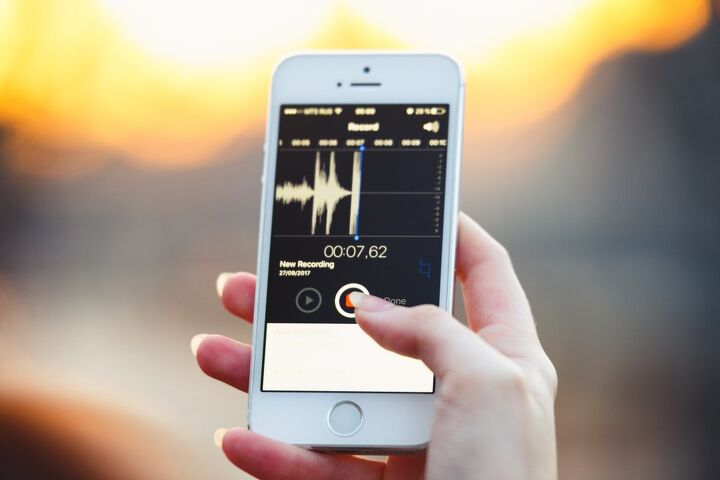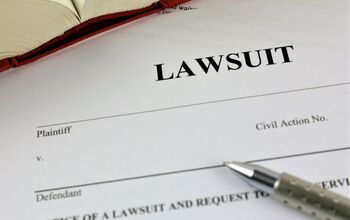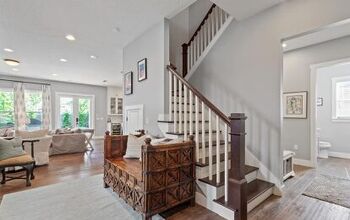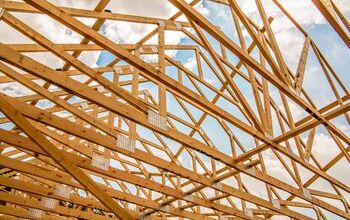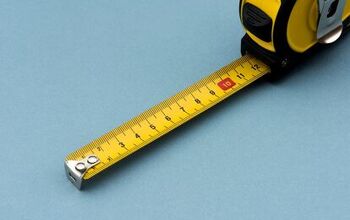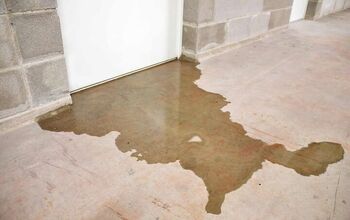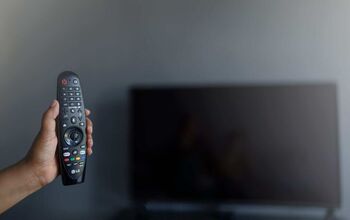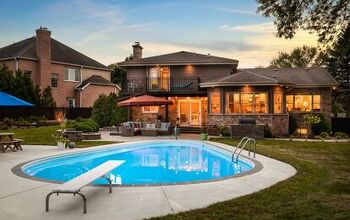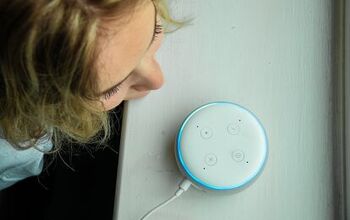Can I Record My Landlord In My Apartment? (Find Out Now!)

Relationships between landlords and tenants can often be complicated. Over time it is not uncommon for issues to arise and for disagreements to commence. When you and your landlord have a disagreement it is always a good idea to collect evidence. You should also keep track of all official correspondences.
If you have a particularly important issue you may even want to record your landlord in your apartment. This may allow you to use it as evidence if the problem persists or worsens. Before you start recording be sure what you are recording is legal and acceptable.
Before you record your landlord in your apartment, check the state laws. If you live in a “one party consent” state you may be allowed to record your landlord even if he or she is unaware. Be careful not to violate any privacy or confidentiality laws when recording your landlord. If your landlord asks you to stop recording, check your lease and laws to ensure you are not in violation of either.
Does Your Landlord Know You Are Recording?
There is one question you need to ask when you wonder if you can record your landlord in your apartment. This question is; “does my landlord know he or she is being recorded?”
If your landlord is unaware that you are recording him or her you may be breaking the law just by recording. You also may not be able to use this recording as evidence. Just as you would not want your landlord spying on you, your landlord will likely feel the same way.
The Federal Wiretap Act
There is a federal law called the Electronic Communications Privacy Act of 1986 that prohibits the concealed recording of any individual who is unaware. This law is also known as the wiretapping law. It prohibits recording anything confidential when the other party, in this case, the landlord, is unaware.
Defining “Confidential”
When it comes to recording your landlord, or anyone, the nature of the communication is as important as the location. You have the right to record in your own home in theory, but what you record matters. If you are recording something thought to be “confidential” between you and your landlord, it may be illegal to share this recording. But what is “confidential” exactly?
Personal Information
If you are recording and your landlord shares private information with you, this can be viewed as confidential. When you and your landlord are in the company of others or if he or she is being recorded, it may not be seen as confidential. However, if he or she is unaware of the recording device it will most certainly be seen as confidential.
Sensitive Information From A Third Party
If you are told any information in regards to a third party in confidence, it will be seen as confidential. This can include information your landlord shares with you about other tenants. It can also include information about the building you live in and its policies or other potentially sensitive information that is not meant to be broadcast without his or her consent.
Private Objects, Documents, or Equipment
Verbal communication is not the only thing that can be seen as confidential. If you record sensitive documents that should not be shared or copied then you are violating confidentiality. If you happen to take photos or record your landlord in a compromised position without him or her knowing, this can be seen as violating confidentiality as well.
Check State Laws
Video and audio recording is still a relatively new concept. As devices become more evolved the state and federal laws must evolve as well. There are federal privacy laws, but many states have more specific laws about video recording. Typically there are two types of state laws in regards to recording interactions. There are “one party consent states” and “two party consent states.”
One Party Consent States
A one party consent state means that you are allowed to record an interaction between you and another person (in this case your landlord) even if he or she is unaware. There are different nuances from state to state. However, generally speaking, if you live in a “one party consent” state then if you are one of the parties in the conversation then you have the right to record it.
Two Party Consent States
A two party, or “all party” consent state requires that both (or all) parties in an interaction or exchange must be aware they are being recorded. This law also often pertains to both public and private locations. This means that even if the recording is occurring in the privacy of your home you may still be obligated to inform your landlord he or she is being recorded.
Be sure to look at the specifics in your states, as even two party and one party consent states can vary in their specifics.
Can I Use Recording As Evidence?
If you have intentionally or unintentionally recorded your landlord and you want to use it as evidence in a greater problem, can you? The answer is, “maybe.” There are a variety of factors involved when it comes to using recorded audio and visual data as evidence in court.
Did Your Landlord Know?
Whether or not your landlord was aware he or she was being recorded often factors in to whether or not the evidence can be used in court. Again, confidentiality laws are very important to consider when recording others.
What Is The State Law?
Just as state laws vary based on recording conversations, they also vary when it comes to what can be used as evidence in court. Some states allow recorded evidence (video and audio). Other states are more strict or specific when it comes to what is permissible as court evidence.
What Exactly Was Recorded?
The content of the recording may also be important. A basic conversation that violates your landlords privacy may get you in trouble, or at least get thrown out of court. If, however, you record a serious or violent crime then the recorded video may be permissible evidence.
This will also vary from state to state, but serious criminal acts caught on camera are often taken into consideration.
Can My Landlord Evict Me For Recording?
If you record your landlord, he or she has the right to ask you to stop. When your landlord asks you to stop you should check your local laws and lease to see if you are in violation of laws or your rental agreement.
If you do not believe you are in violation of laws or rules and decide to continue recording your landlord he or she may try to begin the eviction process.
At this point, it may be wise to press pause on recording and contact legal counsel to be sure you are not in the wrong before you continue recording your landlord in any capacity. It is always best to err on the side of caution when it comes to privacy violations.
Sealing The File
When it comes to recording your landlord in your apartment it is crucial you are aware of laws. Check both federal and state laws before you press record. If you have already recorded your landlord be sure to consider what information is on the recording before letting anyone see it. Privacy and confidentiality violations can be an unnecessary and serious crime. When you are in doubt just be transparent and do your research.
Related Questions
Can I Install A Ring Video Doorbell in My Rental Unit?
If you want to install a Ring video doorbell in the apartment you should be within your legal rights to do so. You should be aware that the landlord has no financial obligation to assist you with this doorbell upgrade. Be sure to let your landlord know about your plans before you install a video doorbell. Some doorbells require significant wiring, and the landlord may request you hire a professional when doing intrusive electrical work on their unit. You may also be responsible for re-installing the old doorbell when you leave the rental.
Can A Landlord Have Cameras On My Rental Property?
Your landlord does have the right to install security cameras on your rental unit property, but there are limitations. First, your landlord needs to inform you of any and all cameras on the property you are renting. These cameras also need to be in plain view. Spy cameras are not allowed.Limits exist when it comes to camera locations. There can be no cameras in any private areas within your dwelling. This includes bedrooms and bathrooms. Check your state’s laws for more specifics.
Can I Install A Security System In My Rental Unit?
If you are interested in installing a security system in your rental apartment, you should first check your lease. When you do not see anything in your lease that would prohibit you from installing a security system in your home then next you should ask your landlord.If your landlord approves your security system, be sure to get this permission in writing. He or she may request certain limitations in regards to the system. These details should also be noted.

Tom Gaffey is an expert writer who currently resides in Washington D.C. Tom has a passion for real estate and home improvement writing, as well as travel and lifestyle writing. He lived the last twelve years in Hawaii where he worked closely with luxury resorts and event planners, mastering his knowledge of aesthetics and luxury products. This is where he found his passion for home improvement and a keen interest in DIY projects. Currently, Tom resides in Washington D.C, and also working on his debut fiction novel.
More by Tom Gaffey



